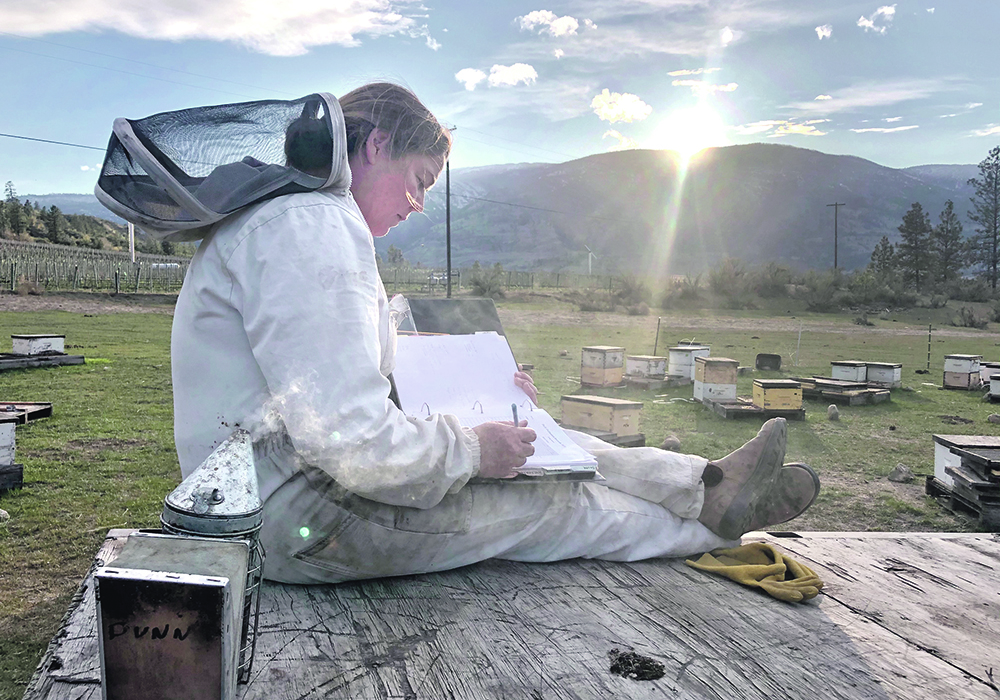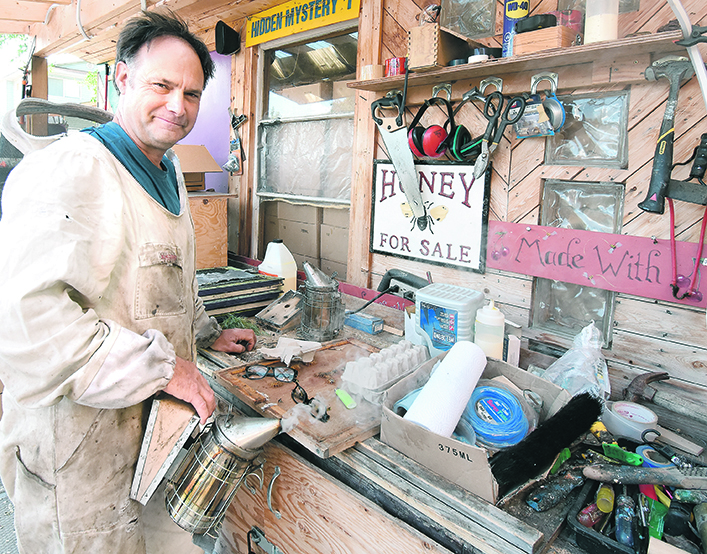Pollinators such as honeybees are the lifeblood of the Okanagan tree fruit industry, and if there are not enough of them it can have devastating results.
For two decades commercial apiarists Kevin and Janelle Dunn of Penticton have provided millions of the bees to growers and were among those who experienced a shortage during this spring’s pollination season.
Each year, the couple augment their own 200-plus hives they lease out to growers by temporarily bringing colonies from other regions to meet the growing demand for the service.
Read Also

Farming Smarter receives financial boost from Alberta government for potato research
Farming Smarter near Lethbridge got a boost to its research equipment, thanks to the Alberta government’s increase in funding for research associations.
“I don’t want to be an alarmist but this was the most difficult (year) in our history of doing pollination over the past 20 years,” said Dunn, 55, who had to go as far away as Manitoba to get bees this time around.
“It was very, very stressful and very, very difficult to source out these bees. They don’t grow on trees, you can’t just pull them out of a hat and now next year there will be potentially a shortage of bees.
“The demand has grown throughout our entire time and it’s never ending. Some growers had to be shorted beehives this year because there wasn’t enough bees and manpower.”
Dunn and other honeybee experts blame much of this year’s shortage on an unexplained, higher than normal die-off in some regions of the province during the colder months. This loss cost commercial beekeepers hundreds of thousands of dollars.
“We work with two partners in Peace River and both of them had catastrophic losses over the winter, the reason of which we are still trying to get to the bottom of,” said Dunn. “Catastrophic winter losses meant that there were very few bee hives to pull from to provide to orchards for pollination services.
“That service is critical for fruit production because without those bees in the orchard you really don’t have fruit production because we’ve destroyed all of our natural habitats and we need bulk pollinators by the millions to do the job.”
During pollination season, the couple lease out as many as 900 hives to growers for periods ranging from one day to several weeks, each of which must be placed by hand by keepers and crews.
For the Dunns, the shortage of bees for this season’s commercial pollination adds to the stress of being one of the only such services in this region.
“Janelle and I and our partner in Peace River are responsible for almost all of the pollination from Osoyoos to Summerland. People don’t know it’s all reliant on three people,” he said. “Three people to do pollination for almost all the fruit in this valley.”
He added that another aspect that makes the work even more difficult are the actions of some growers, especially the growers who spray insecticides when the bees are at work on their property.
“We understand that growers have to spray and it’s important. Spraying doesn’t mean big bad and evil, it’s a reality, but we’re always begging growers to not spray during the day,” said Dunn.
The Dunns have noticed some abnormalities in queen bees, which he believes may be related to pesticides.
“Growers need to know and the public needs to understand that pollination comes at a high cost to us as beekeepers,” said Dunn, adding that due to the shortage of bees, pollination service costs are likely to go up significantly next spring.
Leasing costs to growers have usually been almost a $100 a hive, something Dunn described as “extraordinarily cheap” for the results the service produces.
He feels better communication between grower and beekeeper is necessary to keep the orchards in fruit and the honeybees healthy.



















